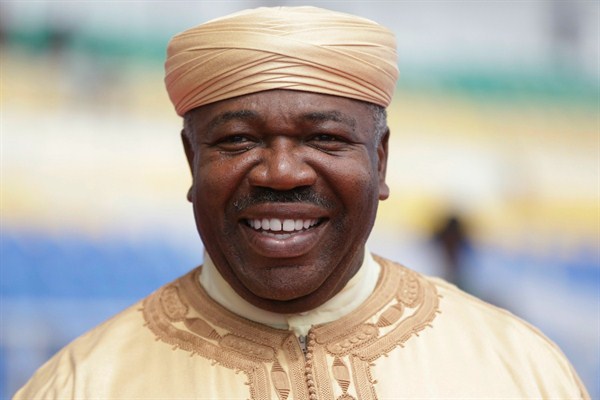When he was sworn in for a second seven-year term last September, Gabon's president, Ali Bongo Ondimba, renewed a call for all political actors “to sit together and find solutions” after an election season marred by protests, violence and mass arrests.
Six months later, the oil-producing Central African nation is still waiting for that dialogue to happen, and there has been little sign of progress. Earlier this month, Bongo proposed a round of talks that would begin March 28. Almost immediately, Jean Ping, the president’s main rival in last year’s vote, said he would not participate, dismissing the idea as a “masquerade.”
It was always going to be difficult for Bongo to emerge as a unifying figure in Gabon. The son of Omar Bongo—a strongman who ruled the country for more than four decades, becoming Africa’s longest-serving leader before dying in office in 2009—the current president has struggled with legitimacy issues from the moment he took office. In an election held less than three months after his father’s death, Ali Bongo came in first, but fraud complaints from his two closest rivals sparked violent protests.

